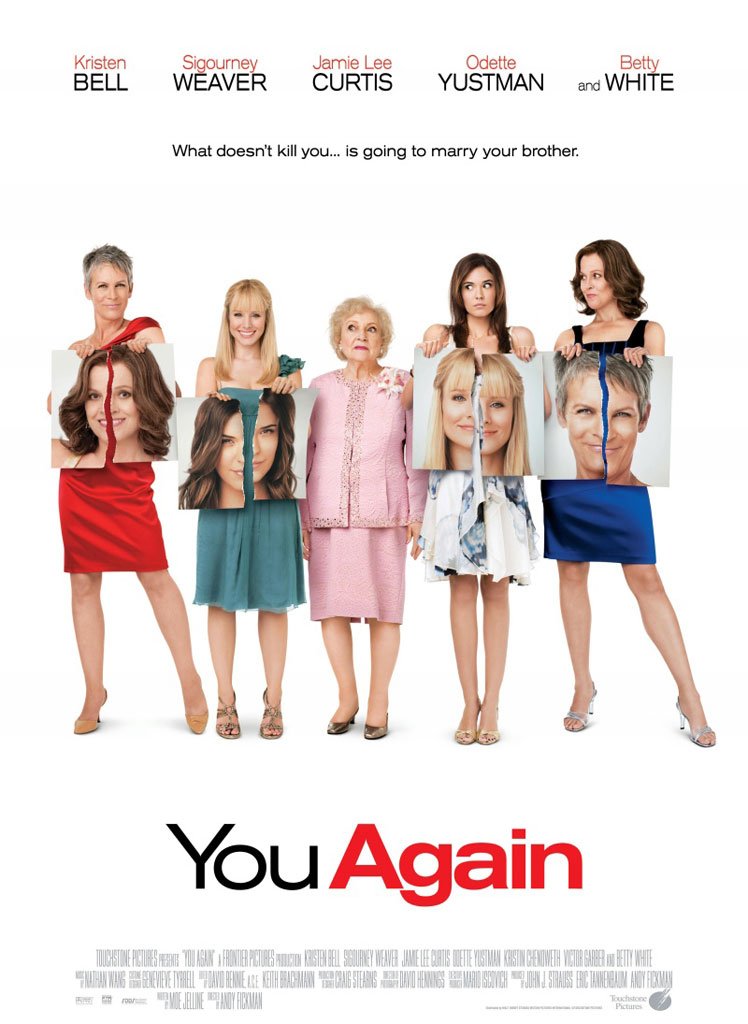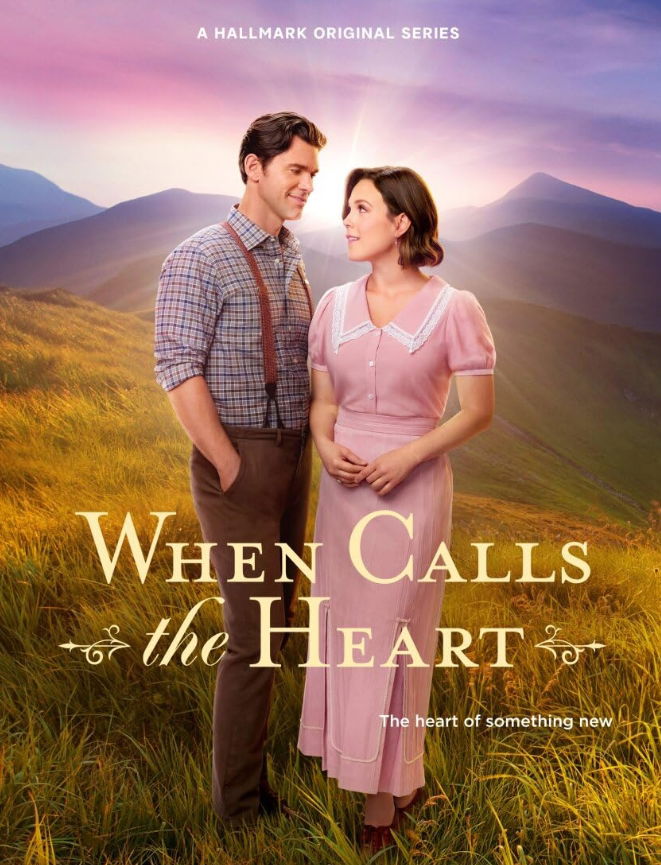
YELLOWSTONE Season 1 is a Compelling but Problematic Postmodern Soap Opera
By Allen Rushing, Movieguide® Contributor
Paramount’s dark neo-western series, YELLOWSTONE stars Kevin Costner, Luke Grimes, Kelsey Asbille, Kelly Reilly, Wes Bentley, Cole Hauser, and Gil Birmingham. It was created by Taylor Sheridan and John Linson.
YELLOWSTONE opens well, establishes strong plot lines and character arcs, and displays solid, if quite disturbing, storytelling potential. The Dutton family, headed by its formidable patriarch, John Dutton, owns the largest ranch in Montana where familial internal strife and corruption, government developmental encroachment, and the ambitions of a neighboring Indian Reservation and its new chief furnish the series’ near-constant conflict.
The series’ pacing is uneven yet has great potency, with the plot lines themes, and character arcs being clearly laid in the first effective episode. It is truly a shame that it is unnecessarily peppered with excessive foul language, violence, and sexual content.
Patriarch John Dutton (Costner), is a quintessentially postmodern character surrounded by opportunists whose envy is undying, and whose own choices in favor of power and wealth have poisoned his parental role and fractured his family relationships. This makes him a legitimately sympathetic anti-hero, the chosen archetype of postmodernism, who pulls down-and-out marginalized persons, like Rip Wheeler (Hauser) out of their misery in his own violent way. He tells one son: “Leverage is knowing if someone had all the money in the world, this is what they’d buy.”
Later, in asking another estranged son, Kayce Dutton (Grimes) – the most moral and honorable character in the show – if the elder Dutton can see his grandson, he states, with obvious personal pain: “Someday your son’s gonna test you. Someday he’s gonna force you to make a decision that not only determines his future but also your place in it. I want you to remember me standing here son, because this, this is a consequence of choosing wrong.”
Kayce replies: “You’ve always asked too much.”
This father-son dialogue is a poignant microcosm of the tragic Dutton family dynamic, which has separated a son from his father and for which the father is most responsible.
This is the reason Kayce and his Native American wife, Monica, are reluctant to let their son see his grandfather; it is why John’s daughter, Beth (Reilly), who “ruins careers for a living,” is one of the most wretched characters in the series; it is why another of John’s sons, Jamie Dutton (Bentley), functions largely as a legal hatchetman for his father and “the family” until conflict brings him to a turning a point; it is the reason that John himself will eventually go from bad to worse, with lies, criminality, and coverups.
Major characters are usually well drawn and their interactions are compelling which makes the story as gripping as the show’s sprawling mountain vistas are awe-inspiring. The intensifying chess game between the most powerful family in Montana and a Native American tribe and its ambitious new warrior Chief is specifically outstanding. The writing is good and the rising storm of conflict is palpable from the first episode to the last.
As tensions rise, a man of the local tribe advises his son-in-law, Kayce: “Until they find a cure for human nature, a man must stand with his people. Now, we are not your people.”
Kayce’s dilemma of having broken from his family, seeking a new place in his world, being a moral man attempting to do what’s right, and yet, slowly sinking under many pressures, being sucked back into “the family,” manifests a stellar character study of what it means to be a man. The show offers a thoughtful portrayal of multiple characters and groups whose dramatic interactions drive the story forward.
However, despite the fact that this is largely the story of family tragedy, a neo-western Macbeth-Macduff tale, characters are developed well, the plot proceeds in a way to leave one wanting more, much is gained and lost, and it is gratifying to see Costner return to a role reminiscent of 1994’s WYATT EARP, even though the series noticeably ups the depravity level of the earlier miniseries. It will be interesting to see how subsequent seasons expand the story and characters.
The dominant worldview of the series seems to be postmodern Romanticism with strong doses of atheism, possibly with a place for faith in the later episodes (John does actually pray, but only as a desperate cry for release from undesirable circumstances). As John says of himself: “I’ve seen too much bad in my life to believe God exists.”
Except for Kayce and his wife, Monica, the Duttons seem to be largely driven by a lust for power and wealth which they are desperate not to lose. This is idolatry and the idolatrous Duttons, while not irredeemable, remain inexcusable.
Everyone but Kayce, Monica, his son, and his few Native American allies, seems to have “supped full with horrors.” Kayce and his family are thus the only biblically moral characters who help to redeem this tragedy from being simply tragic. There is even a pagan wokist element, in the form of a lesbian “couple” from Seattle (of whose relationship far too much is shown) who go out of their way to try and bring down the “rich” and “entitled” Dutton clan from a journalist’s standpoint. This will most likely lead to a major subplot in the next season, but it is also a totally unwarranted and awkward insertion. This all leads to the series’ underlying philosophical assumption of a world without grace.
As a prominent character puts it: “There’s no such thing as a good man. We’re all bad.”
Without Christ, this is true. But then, there is really no discernable presence of Christ in this tale, as of the close of its first season. Hopefully, this will emerge in the character of Kayce as the series continues.
It is disappointing that the show often revels in problematic and immoral behavior, excessive foul language, and especially the choice to include much unnecessary and offensive sexual material. In the season premiere, foul language is frequent with 15 f words, a few strong profanities (d, gd, jc,) and 10 scatological curses, with roughly equivalent amounts in following episodes.
Sexual content is far more present than is called for, with highly sexual scenes in a majority of episodes, including an explicit sex scene depicting a man and woman consummating against a wall; numerous other examples of highly sexualized nudity and similar more or less explicit scenes, from a woman walking naked across her lawn (back, buttocks, and legs shown) to a strip club in which full female nudity is dwelt upon, pop up in later episodes.
It becomes oppressive when a female sex worker is introduced to the all-male bunk house at the ranch and exposes herself and offers her services to all.
As a new ranch hand puts it: “I’ve been with some strange outfits. But this place beats them all. There’s something evil about this place.”
Violence is often quite graphic, such as when two men are killed in a three man gunfight, one shot once, the other many times (impact is shown and bloody wounds in following scenes), a man beats another to death with a frying pan (much blood splatter), and many punishing fist fights, amid numerous other violent incidents. Overall, this is a very adult show which deserves its TV-MA rating.
Production values are very high, cinematography being exquisite and camera work excellent. Overall, the acting is superb with no poor performances, despite what some actors and actresses were asked to do on screen. Aesthetically, this feels like a present day Wild West with a strong dose of postmodernism.
Due to the strongly postmodern Romantic and sometimes atheistic elements of the series which are only partially ameliorated by fleeting redemptive themes and only one key potentially redemptive character, Movieguide® finds the series to be too excessive. The series so muddies itself in excessive sex, violence, immorality, and/or worldview problems, that it cannot be recommended.
Questions or comments? Please write to us here.


 - Content:
- Content: 
 – Content:
– Content: 
